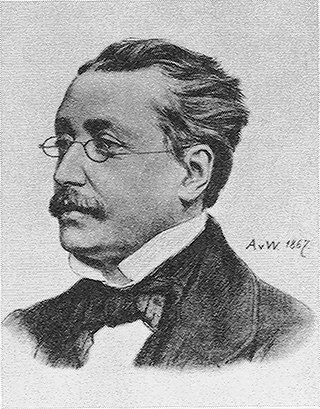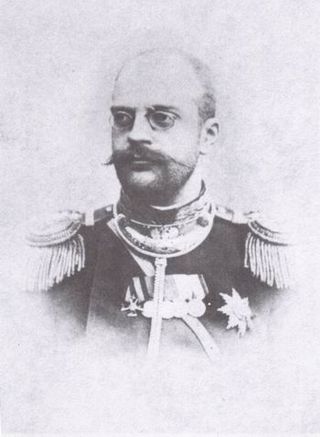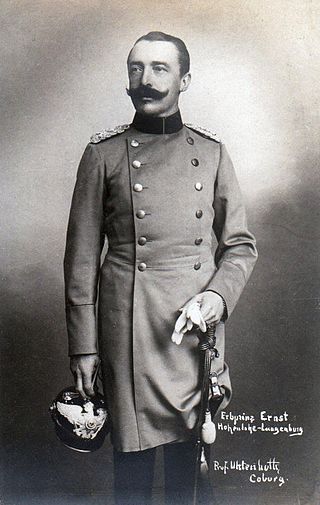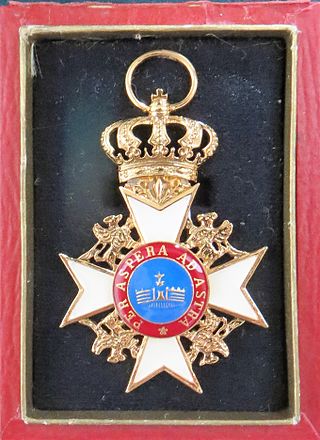| Corps Saxo-Borussia Heidelberg | |
|---|---|
 | |
| Founded | 16 December 1820 |
| Motto | Virtus sola bonorum corona! |
| Headquarters | Heidelberg Germany |
The Corps Saxo-Borussia Heidelberg is a German Student Corps at the University of Heidelberg.
| Corps Saxo-Borussia Heidelberg | |
|---|---|
 | |
| Founded | 16 December 1820 |
| Motto | Virtus sola bonorum corona! |
| Headquarters | Heidelberg Germany |
The Corps Saxo-Borussia Heidelberg is a German Student Corps at the University of Heidelberg.
Saxo-Borussia was established on 16 December 1820. Its motto is Virtus sola bonorum corona!. In 1829 Robert Schumann became a lifelong member. During the Revolutions of 1848 in the German states the corps participated in founding the Kösener Senioren-Convents-Verband (KSCV), an association of German-speaking Student Corps.
In the German Empire and in the Weimar Republic Saxo-Borussia was considered "the most distinguished corps of Christendom" – a reference to the 1st Foot Guards (German Empire). Wilhelm Meyer-Förster wrote a student novel (1885) and Mark Twain reported on his visit in A Tramp Abroad. Kurt Tucholsky taunted the corps with a poem. [1] Unlike the befriended Corps Borussia Bonn, Saxo-Borussia has never been mocked by satirical magazine Simplicissimus. The group was prosecuted in Nazi Germany. It dissolved on 3 July 1935 under persecution, and was recreated in 1952. In 1910 and 1998 it headed the KSCV. [2]

Saxo-Borussia is also known for her Corpshouse called Riesenstein. It is located nearby the Gaisberg (Heidelberg).

Corps (or Korps; "das ~" (n), German pronunciation: [ˈkoːɐ] (sg.), (pl.)) are the oldest still-existing kind of Studentenverbindung, Germany's traditional university corporations; their roots date back to the 15th century. The oldest corps still existing today was founded in 1789. Its members are referred to as corps students (Corpsstudenten). The corps belong to the tradition of student fraternities which wear couleur and practice academic fencing.

The Kösener Senioren-Convents-Verband is the oldest association of German, Austrian and Swiss Studentenverbindungen. It comprises roughly 105 German, Austrian and a Flemish (Belgian), Hungarian and Swiss Corps, all of which are based upon the principle of tolerance.

Joseph Victor von Scheffel was a German poet and novelist.

The Duchy of Saxe-Lauenburg, was a reichsfrei duchy that existed from 1296–1803 and again from 1814–1876 in the extreme southeast region of what is now Schleswig-Holstein. Its territorial center was in the modern district of Herzogtum Lauenburg and originally its eponymous capital was Lauenburg upon Elbe, though in 1619 the capital moved to Ratzeburg.

Frederick II was the last sovereign Grand Duke of Baden, reigning from 1907 until the abolition of the German monarchies in 1918. The Weimar-era state of Baden originated from the area of the Grand Duchy. In 1951–1952, it became part of the new state of Baden-Württemberg.

Prince Friedrich of Saxe-Meiningen, Duke of Saxony was a German soldier and member of the Ducal House of Saxe-Meiningen.

Charles Michael, Duke of Mecklenburg was an officer in the Imperial Russian Army, heir presumptive to the throne of Mecklenburg-Strelitz and from 1918 head of the Grand Ducal House.

Ernst II was a German aristocrat and Prince of Hohenlohe-Langenburg. He served as the Regent of the Duchy of Saxe-Coburg and Gotha during the minority of his wife's cousin, Duke Charles Edward, from 1900 to 1905.

Corps Rhenania Heidelberg is a member Corps of the Kösener Senioren-Convents-Verband, the oldest association of student fraternities in Germany, Austria and Switzerland. Corps Rhenania is "pflichtschlagend", which refers to the fact that it requires of its members, that they participate in several ritual, organised duels with members of other specific student fraternities. Eligible applicants are those students, both current and former, of the Ruprecht Karl University in Heidelberg, Germany. Members of Corps Rhenania are colloquially referred to as "Rhenane".

Victor II, Duke of Ratibor, Prince of Corvey, Prince of Hohenlohe-Schillingsfürst was a member of the House of Hohenlohe-Schillingsfürst and Duke of the Silesian duchy of Ratibor.

The House Order of Albert the Bear was founded in 1836 as a joint House Order by three dukes of Anhalt from separate branches of the family: Henry, Duke of Anhalt-Köthen, Leopold IV, Duke of Anhalt-Dessau, and Alexander Karl, Duke of Anhalt-Bernburg.
Events in the year 1897 in Germany.
Events in the year 1890 in Germany.
Events in the year 1883 in Germany.

The Corps Borussia Bonn is a German Student Corps at the University of Bonn.

The House Order of the Wendish Crown was an Order of the House of Mecklenburg, jointly instituted on 12 May 1864 by Grand Duke Friedrich Franz II of Mecklenburg-Schwerin and Grand Duke Friedrich Wilhelm of Mecklenburg-Strelitz.
Events from the year 1870 in Germany.

Friedrich Wilhelm Eugen Karl Hugo, Prince of Hohenlohe-Öhringen, Duke of Ujest was a German nobleman, politician, mining industrialist and general in the armies of the kingdom of Württemberg and the kingdom of Prussia.